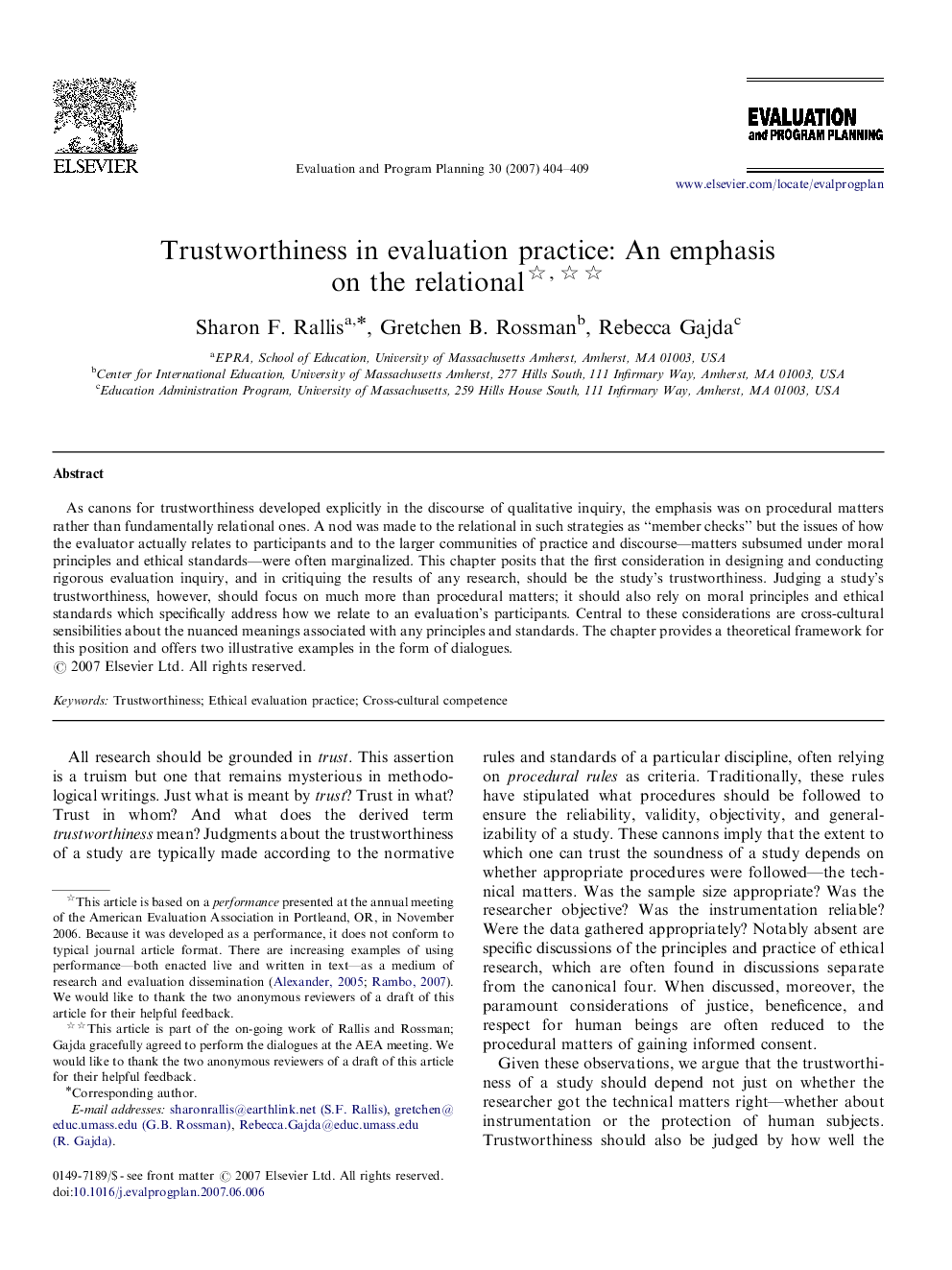| Article ID | Journal | Published Year | Pages | File Type |
|---|---|---|---|---|
| 322331 | Evaluation and Program Planning | 2007 | 6 Pages |
As canons for trustworthiness developed explicitly in the discourse of qualitative inquiry, the emphasis was on procedural matters rather than fundamentally relational ones. A nod was made to the relational in such strategies as “member checks” but the issues of how the evaluator actually relates to participants and to the larger communities of practice and discourse—matters subsumed under moral principles and ethical standards—were often marginalized. This chapter posits that the first consideration in designing and conducting rigorous evaluation inquiry, and in critiquing the results of any research, should be the study's trustworthiness. Judging a study's trustworthiness, however, should focus on much more than procedural matters; it should also rely on moral principles and ethical standards which specifically address how we relate to an evaluation's participants. Central to these considerations are cross-cultural sensibilities about the nuanced meanings associated with any principles and standards. The chapter provides a theoretical framework for this position and offers two illustrative examples in the form of dialogues.
